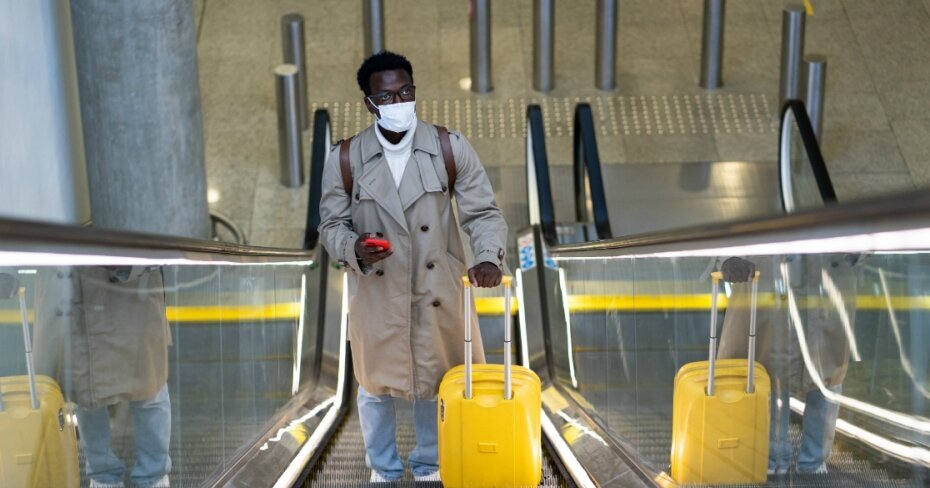Travelling during the pandemic? Proper insurance is key
By: Zandile Chiwanza on November 2, 2020
COVID-19 has changed the way we travel — possibly forever — and as global cases continue to rise and we find ourselves in a second wave, people have understandably become weary about catching a flight.
While some international borders have reopened and some leisure travel has resumed, there’s a lot of new information travellers need to know about travel insurance as it relates to COVID-19.
Pandemic or not, travel insurance ensures you’re protected when the unexpected happens.
Generally speaking, policyholders are covered for medical emergencies and logistical issues, such as lost or stolen baggage, trip cancellations, and interruptions — unless the federal government issues a level three or four travel advisory for your destination.
“The government has said to avoid all non-essential travel outside of Canada due to COVID-19,” says David Rivelis, president of CanAm Insurance. “This means that if you travel outside the country, and you receive a diagnosis of COVID, the travel insurance policy will not respond.”
Some travel insurance companies, however, are responding to this problem with brand new coronavirus-specific coverage.
For instance, Manulife’s COVID-19 Pandemic Travel Plan for Canadians travelling abroad, which is part of its “CoverMe” travel insurance policy, provides emergency medical insurance for COVID-19 related medical conditions for up to $200,000, as long as the insured person doesn’t show signs or symptoms of the virus before their departure. The plan also includes trip interruption insurance in the event that the policyholder needs to quarantine. Each insured person under the policy can be covered for up to $2,100 and up to a maximum of $4,200 per family).
The key is to understand what you're covered for, and most importantly, what you're not covered for
Some airlines, like Air Canada, are even providing complimentary COVID-19 travel insurance coverage through Manulife with international travel tickets in the event you receive a diagnosis of COVID-19 while travelling.
Other insurance providers like Medipac have indicated they will remove the travel advisory exclusion so that COVID-related claims will be covered while others, like Allianz, have indicated that they won’t include coverage for COVID-19 until the federal government drops the travel advisory against non-essential travel.
The new coronavirus is clearly top of mind in the travel insurance space right now, so you need to understand what exactly COVID-19 coverage gets you, and what it doesn’t.
Do you need COVID-19 insurance for domestic travel?
If you plan to travel within Canada, a standard travel insurance policy should be adequate. COVID-19-specific coverage isn't required because there are currently no travel advisories for domestic travel, and the government is not restricting interprovincial travel at this time.
But while you don’t need COVID-19-specific coverage to travel within Canada, you will still need traditional travel insurance because the coverage offered under your provincial healthcare plan is limited when you travel outside of your province. The cost of medical procedures varies by province, and each province has a different healthcare system.
Just like with any insurance policy, it's best not to assume you're covered for something — in this case, COVID-19 — so call your provider and ask questions so you understand your policy.
Do you need COVID-19 insurance for international travel?
Traditionally, travel insurance policies contain exclusions and conditions that may limit your coverage. That's why it’s in your best interest to purchase travel insurance with COVID-specific coverage to ensure you have adequate coverage for medical emergencies, including those related to COVID-19 while you’re in another country.
“Part of the challenge is if you're hospitalized as a result of COVID and it's somewhere where we have to evacuate you and bring you home,” says Rivelis. “There's a risk that $200,000 will not be enough coverage. The key is to understand what you're covered for, and most importantly, what you're not covered for.”
Availability of travel medical coverage for COVID-19 is evolving
Here are some important questions to ask your insurance provider before your departure:
- Do I have any medical coverage in the event of illness due to COVID-19?
- If I fall ill, will I have protection that will cover my medical expenses, such as ambulance costs, hospital stays (including intensive care), and/or medical evacuation?
- In the event of another lockdown and/or more border closures due to COVID-19, what expenses related to that lockdown will my travel insurance policy cover?
- What are the gaps or potential gaps in my coverage?
If you must travel, here’s what you need to know
If you plan to travel outside the country while the travel advisory is in place, insurance professionals like Kevin Dorse, the assistant vice-president of strategic communications and public affairs at Canadian Life and Health Insurance Association, urge travellers to take some extra steps to make sure you are protected.
"Availability of travel medical coverage for COVID-19 is evolving given the circumstances," says Dorse, "which is all the more reason why it’s a very smart idea for those who may be planning to travel outside Canada at some point to speak to their insurer or potential insurer to know what coverage may be available before making any concrete plans."
Even if you don’t experience any medical emergencies while abroad, the chances of your flight(s) being delayed or cancelled may be higher due to COVID-19's current upheaval of air travel. For instance, Air Canada and WestJet cancelled 439 flights in September alone, as a result of the decreased ridership due to COVID-19.
Dorse says it’s key to read the policy wording and ask an insurance professional what’s covered but more importantly, what is excluded.
Here’s some more advice for travellers:
- Monitor travel advisories. Visit the federal government's travel website for travel advice and advisories.
- Avoid non-essential travel. Follow the recommendations of health and government authorities. The Canadian government still has a level 3 non-essential travel advisory in effect that can be found on its website.
- Purchase "cancel for any reason" trip cancellation coverage. Although this policy is more expensive, it's also more flexible around the reasons for trip cancellation.
- Get adequate travel insurance coverage. Ensure you have the right coverage for your entire trip as some insurers may limit options to extend policies after departure.
- Register with Global Affairs Canada whenever you travel (or live) abroad. The free service allows the Government of Canada to notify you in case of an emergency abroad or a personal emergency at home.

.jpg?itok=Dx5OBzng)
